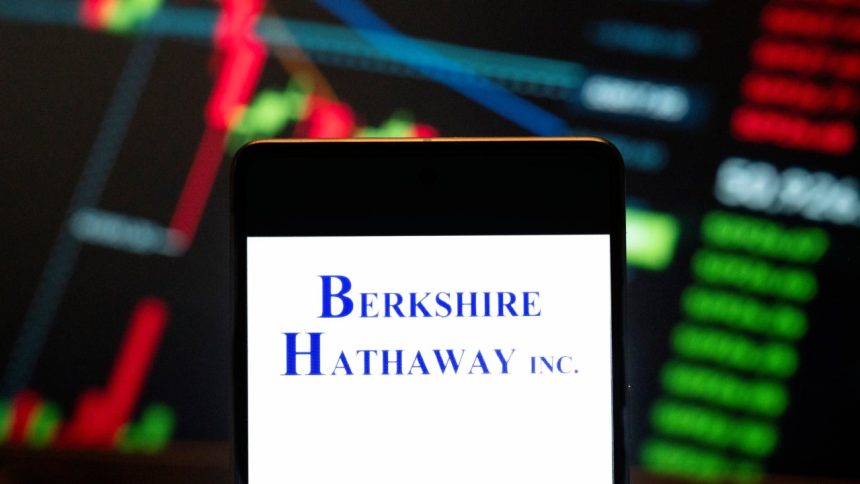Nvidia made a huge splash as it skyrocketed in the last couple years to become a trillion-dollar stock. It now sits among tech heavyweights such as Microsoft, Apple and Amazon in the list of the world’s largest companies. But who else is primed to join the list of trillion-dollar stocks?
Below are some of the best candidates to become a trillion-dollar stock – and they’re not simply the largest companies.
What are the next trillion-dollar stocks?
Below are stocks primed to pass a market capitalization of $1 trillion, that is, the value of all their shares. The list below doesn’t simply include the next names down the list of the world’s largest firms, however. Instead it uses a couple variables to figure when a stock could hit the milestone:
- Market capitalization: Obviously, the closer you are to the trillion-dollar level, the less growth you need to make it to that level.
- Growth rate: The faster a company is growing, the less time it needs to surpass the trillion-dollar threshold.
The list below figures each company’s three-year historical growth rate and then projects that forward to conclude the time until each company hits $1 trillion. So fast-growing firms that are not all that close to $1 trillion still manage to populate the list below.
| Company (symbol) | Market cap | Stock growth (3-year average growth) | Time until $1 trillion |
|---|---|---|---|
| Source: Google Finance, as of July 2, 2024 | |||
| Berkshire Hathaway (BRK-B) | $876 billion | 13% | 1 year and 1 month |
| Eli Lilly (LLY) | $862 billion | 57% | 4 months |
| Broadcom (AVGO) | $772 billion | 52% | 7 months |
| JPMorgan Chase (JPM) | $596 billion | 10% | 5 years, 4 months |
| Walmart (WMT) | $545 billion | 13% | 4 years, 8 months |
| Exxon Mobil (XOM) | $510 billion | 22% | 3 years, 4 months |
| Oracle (ORCL) | $395 billion | 21% | 4 years, 10 months |
| Costco Wholesale (COST) | $381 billion | 29% | 3 years, 8 months |
| Merck (MRK) | $324 billion | 18% | 6 years, 10 months |
| Advanced Micro Devices (AMD) | $262 billion | 20% | 7 years, 4 months |
For example, Berkshire Hathaway has a market cap of $876 billion and with the stock’s recent growth of 13 percent annually, it would reach $1 trillion in around 13 months. In contrast, the smaller but faster-growing Oracle will take almost five years at recent growth rates.
Of course, these calculations make a big assumption, namely that recent growth in the stock will continue for the foreseeable future and won’t be derailed by a bear market or a recession.
Should you purchase the market’s largest stocks?
A large market cap tells you that investors expect a lot of a company in the future, and only the market’s strongest companies surpass the $1 trillion threshold. Of course, the threshold of $1 trillion is purely psychological, and the figure could be $756 billion – but the point remains: the largest companies have strong fundamental business and deep financial resources.
A large market cap tells you what the market thinks, but it doesn’t necessarily tell you that a stock is a home-run investment. Stocks such as Microsoft and Cisco were the market’s largest stocks at the top of the dotcom boom in 2000 and then did little for the next decade.
But a large market cap does reveal a few piece of information to investors:
- Strong stock performance: A large market cap shows the stock has done well in the past, but does not clearly indicate how it will do in the future. Investors will have to do their own research to figure out how the stock could perform in the future.
- High expectations: A high market cap also reveals that investors expect a lot of a company in the future and have confidence that it can achieve those expectations. Whether the company can meet those expectations will be revealed in time, however.
- Strong financial performance: By valuing a company highly, investors are also saying that the company is strong financially, and helping to make it a reality by giving it a strong liquid currency in the form of the stock, which could be used to raise money.
So the stock valuation tells you what the market thinks today about the company’s prospects, but you’ll have to do the research and analysis yourself to see if the company is a good investment. That legwork requires a lot of time, and those looking to invest in the market’s largest companies can purchase an S&P 500 index fund, which includes all the stocks above.
Those looking for a more tech-focused fund could purchase a fund based on the Nasdaq index, and enjoy a heavier weighting to some of the market’s largest stocks.
However you go, you’ll want to work with one of the best online brokers, which offer research, low commission and strong customer support.
Bottom line
A large market cap such as one trillion dollars can tell you a lot, but it’s not telling you whether a stock is a good buy or not. But many of the market’s top stocks continue running up for years, even decades, after they became household names, giving even late investors time to profit.
Editorial Disclaimer: All investors are advised to conduct their own independent research into investment strategies before making an investment decision. In addition, investors are advised that past investment product performance is no guarantee of future price appreciation.
Read the full article here
















